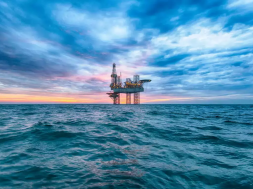
Better information needed to improve gender diversity in the clean-energy sector
ROME — Recognizing that the energy sector lags when it comes to gender diversity, the Italian Agency for New Technologies, Energy and Sustainable Economic Development (ENEA) and the International Energy Agency (IEA) brought together over 80 experts from governments, industry, academia and other organisations for a day-long workshop last week to discuss ways to improve data on women’s participation in the clean-energy sector.
Only limited data on the participation of women in the energy sector is currently available – data that will be critical to building a better understanding of how to make the sector more gender balanced. Without better information, reaching the goal of gender equality by 2030, set under the United Nations Sustainable Development Goal (SDG 5), will be impossible to reach.
Participants shared experiences on data collection and methods of assessment to analyse gender diversity as well as employment opportunities offered to women by the clean energy transition. The workshop was held under the Clean Energy Education and Empowerment Technology Collaboration Programme (also known as the C3E TCP), which seeks to promote higher participation of women in the clean-energy sector.
“The extraordinary and recognised capacity of women to handle complex and multivariable contexts, their openness to innovation and their responsiveness to environmental issues constitute an important asset for the energy transition” said Massimo Gaiani, Director General for Global Affairs of the Italian Ministry of Foreign Affairs and International Cooperation.
Four key messages emerged from the discussions:
1) Participants recognised the importance of collecting more detailed gender disaggregated data, but stressed the need to clearly define what information was needed and why;
2) Quantitative data should be supplemented with qualitative information to identify key barriers for women pursuing careers in the energy sector and to develop more targeted solutions to overcoming these challenges;
3) While comprehensive data is limited, a significant number of national and international efforts to collect information and promote gender already exist and there is opportunity for the Clean Energy Education and Empowerment Technology Collaboration Programme (C3E TCP) to collaborate with other leading institutions working on gender diversity to help build and disseminate knowledge;
4) Finally, the increased engagement of men to promote and support women’s advancement into leadership roles is critical in meeting gender equity and should be fostered.
The meeting also included a dialogue with leading Italian energy companies on a proposal to adopt a common pledge to take action and commitments to achieve gender equality by 2030 (SDG 5). Led by Sweden and Canada with support from the IEA, this new campaign will be launched at a side event to take place at the next Clean Energy Ministerial meeting in Copenhagen on 24 May.
Companies recognised the valuable role that women play in driving innovation and sustainability. Francesca Magliulo, Head of Sustainability and Corporate Social Responsibility of EDISON S.p.A Italy said, “Edison supports this initiative, our experience shows that inclusion and gender diversity creates new capacity to offer innovative solutions to new markets and new customer communities.”
Participants also confirmed that the current momentum to advance and accelerate progress on gender equality represents a tremendous opportunity. While the workshop focused on building knowledge and improving data, Elisabeth Marawba of the Department of Energy of South Africa stressed that “we also need to pay attention to the empowerment of women as business-owners and investors and not just focus on the employment aspects of women in clean energy.”
The C3E TCP and IEA will work together to expand data and indicators as well as undertake analysis to help fill the knowledge gap on gender diversity and women’s empowerment in the energy sector.











